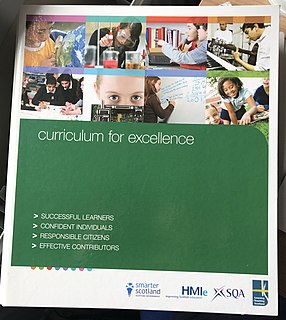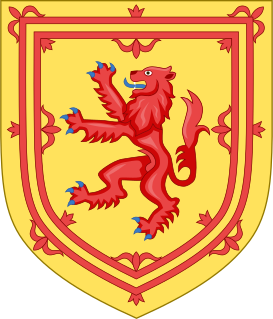Related Research Articles

Youth work is community support activity aimed at older children and adolescents. Depending upon the culture and the community, different services and institutions may exist for this purpose. In the United Kingdom youth work is the process of creating an environment where young people can engage in informal educational activities. Different varieties of youth work include centre-based work, detached work, school-based work and religion based work. Throughout the United States and Canada, youth work is any activity that seeks to engage young people in coordinated programs, including those that are recreational, educational, or social by nature and design.

The Quality Assurance Agency for Higher Education (QAA) is the independent body that checks on standards and quality in UK higher education. It conducts quality assessment reviews, develops reference points and guidance for providers, and conducts or commissions research on relevant issues.
The United Nations defines community development as "a process where community members come together to take collective action and generate solutions to common problems." It is a broad concept, applied to the practices of civic leaders, activists, involved citizens, and professionals to improve various aspects of communities, typically aiming to build stronger and more resilient local communities.
ELWa was an Assembly Sponsored Public Body responsible for post-16 learning in Wales, active from 2000 to 2006. ELWa's functions are now exercised by the Assembly Government's Department for Children, Education, Lifelong Learning and Skills.

Learning and Teaching Scotland was a non-departmental public body of the Scottish Government, formed by the merger of the Scottish Consultative Council on the Curriculum (SCCC) and the Scottish Council for Educational Technology (SCET). It was the main organisation for the development and support of the Scottish curriculum, and was at the heart of developments in Scottish education until its merger with Her Majesty's Inspectorate for Education to form Education Scotland in 2011.
The European Centre for the Development of Vocational Training (Cedefop) is an agency of the European Union. Established in 1975, Cedefop is headquartered and located in Thessaloniki region, Greece, and has a Brussels office. Cedefop is the acronym of its French title, Centre Européen pour le Développement de la Formation Professionnelle (C.E.DE.FO.P.). Cedefop supports the development of European vocational education and training (VET) policies and contributes to their implementation.

The Convention of Scottish Local Authorities (COSLA) is the national association of Scottish councils and acts as an employers' association for its 32 member authorities.

The Royal College of General Practitioners (RCGP) is the professional body for general (medical) practitioners in the United Kingdom. The RCGP represents and supports GPs on key issues including licensing, education, training, research and clinical standards. It is the largest of the medical royal colleges, with over 50,000 members. The RCGP was founded in 1952 in London, England and is a registered charity. Its motto is Cum Scientia Caritas – "Compassion [empowered] with Knowledge."
The Commonwealth of Learning (COL) is an intergovernmental organisation of The Commonwealth headquartered in Metro Vancouver, British Columbia, Canada. Working collaboratively with governmental and nongovernmental organizations and other institutions in the Commonwealth, as well as with international development agencies, COL has the mandate to promote the use of open learning and distance education knowledge, resources and technologies. The Board of Governors is chaired by Professor Narend Baijnath, former chief executive officer, Council on Higher Education, South Africa.
The General Teaching Council for Scotland (GTCS) is a fee based registered charity and the world's first independent self-regulating body for teaching. The current Chief Executive and Registrar is Dr Pauline Stephen. The GTCS maintains a register of qualified teachers; there were 77,386 teachers on the register on 3 November 2021.
Community education, also known as community-based education or community learning & development, is an organization's programs to promote learning and social development work with individuals and groups in their communities using a range of formal and informal methods. A common defining feature is that programmes and activities are developed in dialogue with communities and participants. The purpose of community learning and development is to develop the capacity of individuals and groups of all ages through their actions, the capacity of communities, to improve their quality of life. Central to this is their ability to participate in democratic processes.
Environmental Health Officers are responsible for carrying out measures for protecting public health, including administering and enforcing legislation related to environmental health and providing support to minimize health and safety hazards. Environmental Health Officers keep our water, food, air, land, facilities and other environmental factors safe of health hazards, whether biological, chemical or physical. They also address the related factors that impact behaviours. Environmental Health Officers assess and control environmental factors that can potentially affect health, to prevent disease and create health-supportive environments. Environmental determinants of health play a major role in a community’s overall health and well-being, and thus Environmental Health Officers are essential in improving population health outcomes and reducing the burden of disease.

Non-formal learning includes various structured learning situations which do not either have the level of curriculum, syllabus, accreditation and certification associated with 'formal learning', but have more structure than that associated with 'informal learning', which typically take place naturally and spontaneously as part of other activities. These form the three styles of learning recognised and supported by the OECD.
Floyd Grant Robinson is a teacher, education theorist and curriculum developer. He has written many works on the topics of stimulating complex thinking and the importance of education across the entire lifespan. Robinson is most notable for his work done while at the Ontario Institute for Studies in Education (OISE) between 1965 and 1991.
The Rhode Island Department of Education (RIDE) is a state agency in Rhode Island that oversees the elementary and secondary education system from pre-Kindergarten through high school. It is headquartered in Providence. RIDE works closely with the Rhode Island Office of the Postsecondary Commissioner (RIOPC), the agency charged with overseeing higher education. Together, RIDE and RIOPC aim to provide an aligned, cohesive, and comprehensive education for all students.
The Council for Dance, Drama and Musical Theatre (CDMT), formerly known as the Council for Dance Education and Training (CDET), is the quality assurance and membership body for the professional dance, drama and musical theatre industries in the United Kingdom. CDMT was founded in 1979.

Education Scotland is an executive agency of the Scottish Government, tasked with improving the quality of the country's education system.
Social workers use education as a key tool in client and community interactions. These educational exchanges are not always explicit but are the foundation of how social workers learn from their service participants and how social workers can assist with information delivery and skill development.
Climate change education (CCE) is education that aims to address and develop effective responses to climate change. It helps learners understand the causes and consequences of climate change, prepares them to live with the impacts of climate change and empowers learners to take appropriate actions to adopt more sustainable lifestyles.
References
McConnell Charlie. Community Education: The Making of an Empowering Profession.1996; 1997. Scottish Community Education Council. Edinburgh. ISBN 0 947919 75 9